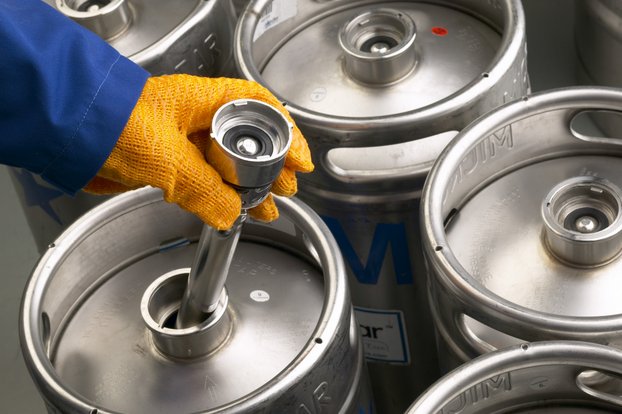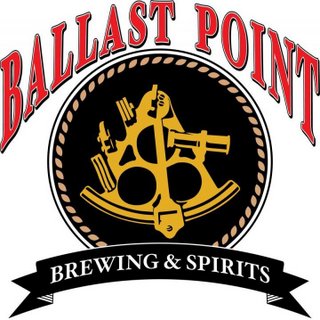
Ownership is a fundamental American ideal because ownership is thought to be synonymous with freedom. You own that land or car, so it’s yours. Go nuts. But the freedom of ownership can be a canard, especially for you, craft brewer.
Keg ownership, for example, means you now must accurately account for keg utilization (turns), loss rates, repair and maintenance costs, opportunity costs should demand exceed forecasts and the overhead and operational complexity that comes with ownership. That doesn’t exactly sound like freedom.
So the question is, why fret about all of these issues when you don’t have to? Sometimes, the real freedom is paying someone else to accomplish tasks so you can focus on what really matters (making beer). Ownership might still be a deeply American ethos, but craft beer is all about collaboration. It might make sense for your operation to find strength in numbers when it comes to kegs.
In terms of keg management, this is where a company like MicroStar comes into play. Think of MicroStar like Netflix. Sure, if you like movies and TV shows, you can buy every single Blu-ray you like or want to watch, or, for a fixed fee, you can share a giant pool of media with everyone else who subscribes to the service. MicroStar owns the largest independent fleet in the country, approaching 2 million kegs. This robust network of kegs can provide tremendous flexibility for a craft brewer, while reducing several business-running headaches. The combined buying power of MicroStar’s large customer base helps to negotiate lower keg prices, and the pooled-asset model reduces the miles empty kegs travel.
“Some folks mistakenly believe that once a brewer has better access to capital they might then buy their own kegs,” said Michael Hranicka, president and CEO of MicroStar. “What we’re seeing now is that the capital-relief benefits of MicroStar sometimes bring customers in and then they stay on the program for the flexibility, growth opportunities and sustainability benefits we deliver. For these reasons, many of our customers have been with us for more than 15 years, including some of the largest, fastest-growing craft brewers in the country.”

“The Ballast Point/MicroStar partnership represents what’s great about our industry. It’s all about collaboration,” said Jim Buechler, president and general manager of Ballast Point Brewing & Spirits. “By participating in MicroStar’s pooled-keg model, we all benefit from increased flexibility to help us grow our businesses. In addition, by reducing the miles empty kegs travel, MicroStar helps reduce our industry’s carbon footprint making us all more sustainable.”
Back to the idea of flexibility. New, growing and even established craft brewers have volatile forecasts that don’t always jibe perfectly with those keg shipments. You aren’t perfect, and business is far from an exact science, so what if you overestimate your forecast and bring in too many kegs? That will tie up capital and warehouse space. What if you underestimate your forecasts? Then you won’t have the kegs you need to meet demand, you will short orders and potentially lose customers just as you were gaining a foothold.
Now think about the volatility just one keg represents in your planning. There are slow turns, high loss rates, big repair and maintenance costs, plus the hassles of coordinating returns with potentially hundreds of distributors. And don’t forget about the additional investments in people, systems and access to freight, which is becoming tighter and more expensive.
Lastly, when considering eco-friendly business practices, freight-related greenhouse gas emissions often account for more than half of a brewer’s carbon footprint.
A keg pooling service reduces or eliminates many of these issues.
“Brewers provide us with their forecasts, and we guarantee that we will meet their requirements, including some cushion up or down,” Hranicka said. “In addition, if brewers have a dramatic change in their forecasts, especially spikes in demand as has been typical in this industry, we are able to meet that demand due to the size of our fleet and our leverage with our keg suppliers.”
MicroStar customizes a program that meets each brewery’s needs. Here’s a snapshot of the workflow if you aren’t entirely sure how this whole keg-pooling process will work:
- A brewery orders the kegs it needs 30 days in advance.
- Upon receiving the empty kegs, the brewery cleans and sanitizes each keg to industry standards.
- The brewery then fills and ships the kegs to its wholesalers, but lets MicroStar know where they were shipped. This helps MicroStar keep track of the fleet. The company also has an online tool called “TAP” that streamlines this process.
- From here, MicroStar handles the delivery of empty kegs to the brewery.
- MicroStar invoices the distributor a $30 deposit on the kegs when the brewer reports shipments of full kegs to the distributor.
- MicroStar arranges for empty keg pickup directly from a wholesaler or warehouse and delivers the kegs the brewery has ordered back to the brewery.
To understand if this process is right for you, model all of the costs you associate with keg ownership and compare it to the pay-per-fill structures out in the market. Be sure to accurately account for what was mentioned earlier: turns, loss rates, repair and maintenance costs, opportunity costs and the overhead and operational complexity that comes with owning your own cooperage.
At first glance, the amortized cost of buying new kegs will possibly look cheaper than a pooled-keg program, but taking everything into account (including reduced Advil intake from reduced headaches) the economics of a MicroStar solution are alluring after the costs of keg management are removed.
“Every option available to a brewer has its pros and cons. Ultimately, in a growing industry like craft beer, brewers have the opportunity to deploy capital to high return, high growth projects rather than owning their own kegs which is a low-return, long-payback proposition,” Hranicka said. “Because our business model fundamentally reduces the cost to use steel kegs, our customers save money and they don’t have to invest in people, systems and transportation to handle their own reverse logistics. All of this frees up capital so brewers can invest in brewing great beer and growing their businesses.”





A Keg pooling service can reduce or eliminate many of issues that arise from Keg ownership. http://t.co/GUQ3zT94AL
Is a pooled-asset, keg management solution right for you? http://t.co/qb9yLk7D8f via @craftbrewingbiz